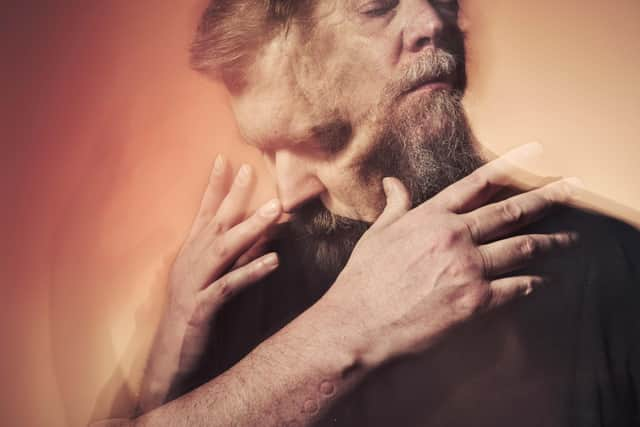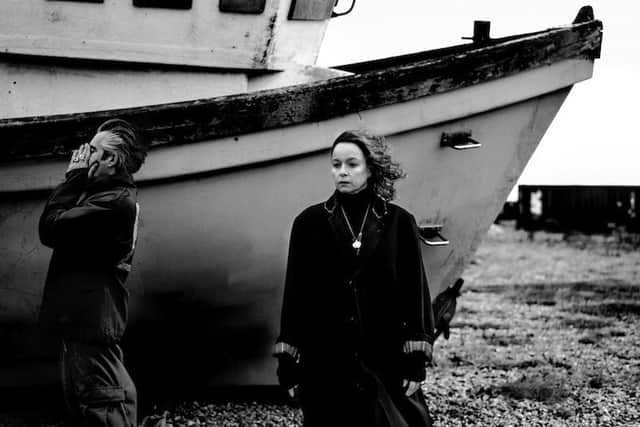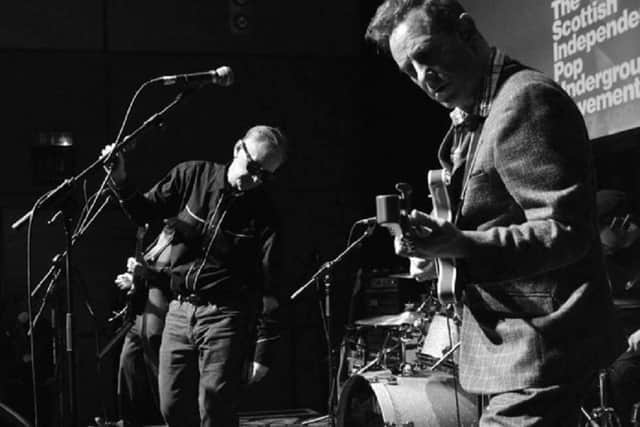John Grant: The Art of the Lie review - 'both darkness and humour'
John Grant: The Art of the Lie (Bella Union) ****
Sam Morton: Daffodils & Dirt (XL Recordings) ***
James King and the Lone Wolves: The Mortality Arcade (Last Night From Glasgow/Stereogram) ***


Herald: Linear B (Errol’s Hot Wax) ****
Wherever John Grant’s creative head is at, there will be both darkness and humour. His sixth album, The Art of the Lie, builds on the autobiographical elements of predecessor, The Boy From Michigan, with tracks called Father, Daddy and Mother and Son – the latter featuring a serene vocal from Rachel Sermanni – which tend to towards the more ambient end of the spectrum of his diverse output.
Advertisement
Hide AdAdvertisement
Hide AdBut it’s clear he is also channelling his inner Rick James on the more extrovert likes of All That School For Nothing, written for Blondie who passed it up. Their loss is our gain as Grant and band, comprising guitarist Dave Okumu, bassist Robin Mullarkey and the sublime Seb Rochford on drums, dig deep into the funky bass notes and swirly synths.
The luxurious, lengthy Marbles marks a return to the smooth legato torch songs on which he made his name, with Okumu’s industrial guitar finally entering the picture close to the five-minute mark for a big swishy finish.


Many tracks hover around the seven-minute mark so there is plenty time to get into the Eighties electro funk groove of It’s a Bitch, with guttural Melle Mel-style “huh-huhs”, or luxuriate in the glacial tones of the desolate Daddy (“you don’t like what I am, I have come to understand”). The tender Father sounds like an excerpt from a letter to pater, delivered with love but haunted by feelings of inadequacy.
Oscar-nominated and BAFTA-winning actress Samantha Morton also mines her volatile childhood on Daffodils & Dirt, her debut album collaboration – as Sam Morton – with XL Recordings head honcho Richard Russell.
Her lyrics are the stuff of a poetic memoir but Morton has always been an artist who surprises and so music it is, specifically a trip-hop soundtrack of gauzy samples with her light, lullaby vocals belying the pain of a childhood in care and on the streets. She seems determined to mine the positives from her formative experiences. Broxtowe Girl is a highlight, evoking memories of listening to UB40, before frontman Ali Campbell manifests as guest vocalist to comfort and encourage her.
There are themes of self-comfort and hints of escapist fairytales and nursery rhymes throughout, including an appropriately childlike cover of Johnny Ray’s The Little White Cloud That Cried while Alabaster DePlume’s saxophone and the soulful backing coos on Let’s Walk in the Night blow away the prevailing wispiness.


Cult Glasgow band James King and the Lone Wolves were the bad boy contenders of the post-Postcard Records scene but didn’t make it as far as releasing their John Cale-produced debut album. Lost Songs of the Confederacy was finally released in 2014 and the band have worked on follow-up The Mortality Arcade over the past decade. Its brawny reflection on grief and growing old includes the burnished blues prowl An Incidental Apocalypse, Mavericks-style Tex Mex sway of At the Bottom of the Sea and a touch of Television in the low-slung but tight chiming delivery of Every Mother’s Son.
Advertisement
Hide AdAdvertisement
Hide AdBaltimore-based Lawrence Worthington spent the Nineties in Glasgow playing drums in bands such as The Yummy Fur, Country Teasers and The Male Nurse, and experimenting solo as Herald. Hooking up in his new home with Josh Dibb aka Deakin of Animal Collective, he revisited his armoury of cheap synths to deliver a belated debut album. Linear B is an atmospheric, appealing and elegant suite of lo-fi synth pop composed on vintage Casios and Yamahas, topped with his plaintive vocals and choral multi-tracking. There is a trippy devotional feel to Baz & Edge, while Lights sounds like a gothic punk synth dispatch with bonus tremolo effect.
CLASSICAL
Héloïse Werner: close-ups (Delphian) *****
Héloïse Werner is a unique voice in contemporary music performance, literally as a soprano with the same astonishing acrobatic versatility as, say, the late Jane Manning, and also as a composer whose music evokes a uniquely translucent freedom of expression. She’s been a key member of the experimental ensemble The Hermes Experiment, but teams up here with a miscellany of similarly minded instrumentalists for a refreshingly personal musical journey chiefly of her own music, interspersed with the fragile simplicity of Errollyn Wallen’s Tree and sublime arrangements of songs from earlier centuries by Barbara Strozzi, Julie Pinel and the iconic Hildegard of Bingen. Her own close-ups is the centrepiece, encompassing spectral enchantment and fiery absurdity. Unexpected Intentions is as madcap as any Maxwell Davies music theatre piece, Les Leçons du mardi a hysterical musical menagerie. Three improvisations (Echoes) act as transitional meditations. Lullaby for a Sister makes a deeply moving conclusion. Ken Walton
FOLK
Brooks Williams & Aaron Catlow: Greens & Blues (Red Guitar Blue Music) ****
The inspired pairing of UK-based American guitarist and singer-songwriter Brooks Williams and bluegrass-accented English fiddler and singer Aaron Catlow returns, joined by double-bassist Jon Short, with this full-on clutch of contemporary and self-composed Americana. They set the tone with a slick, down-homey rendition of the Rev. Thomas Dorsey’s Rock Me, a hit for Sister Rosetta Tharpe in the Thirties, fiddle darting around Williams’s full-voiced delivery. Catlow’s fiddle provides gritty narrative, too, over stealthy guitar and bass in Molly Tuttle’s Dooley’s Farm and laces through the bar room romp of Wild, Wild, Wild, while there’s suitably locomotive drive as Williams hollers out the bluesy Jump That Train. The gently swinging Anniesland is their tribute to their late friend, fellow troubadour and guitar buff, the much missed Rab Noakes, to whose wry composition, Little Way Up, they also give heartfelt voice. Jim Gilchrist